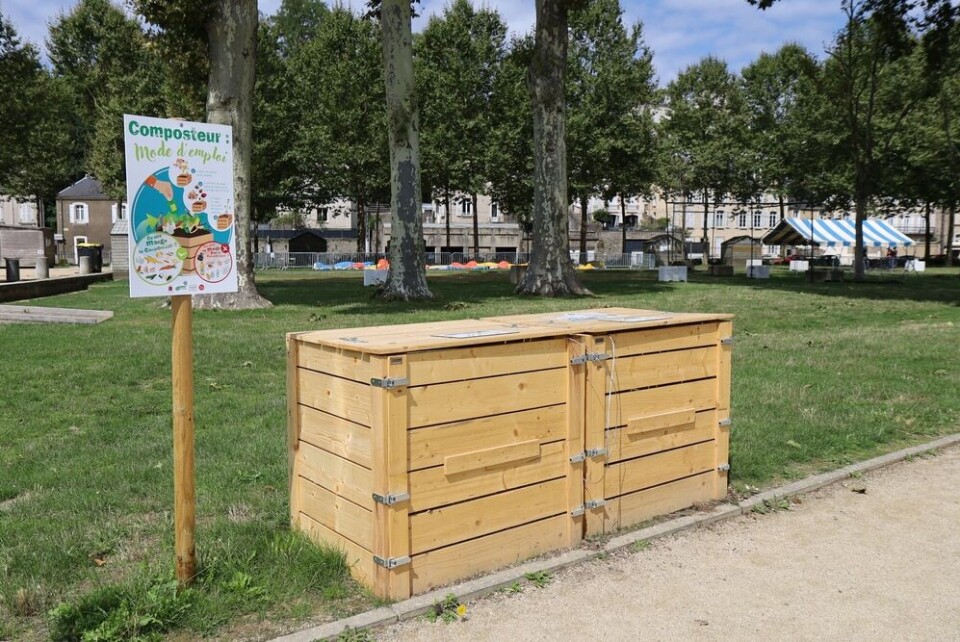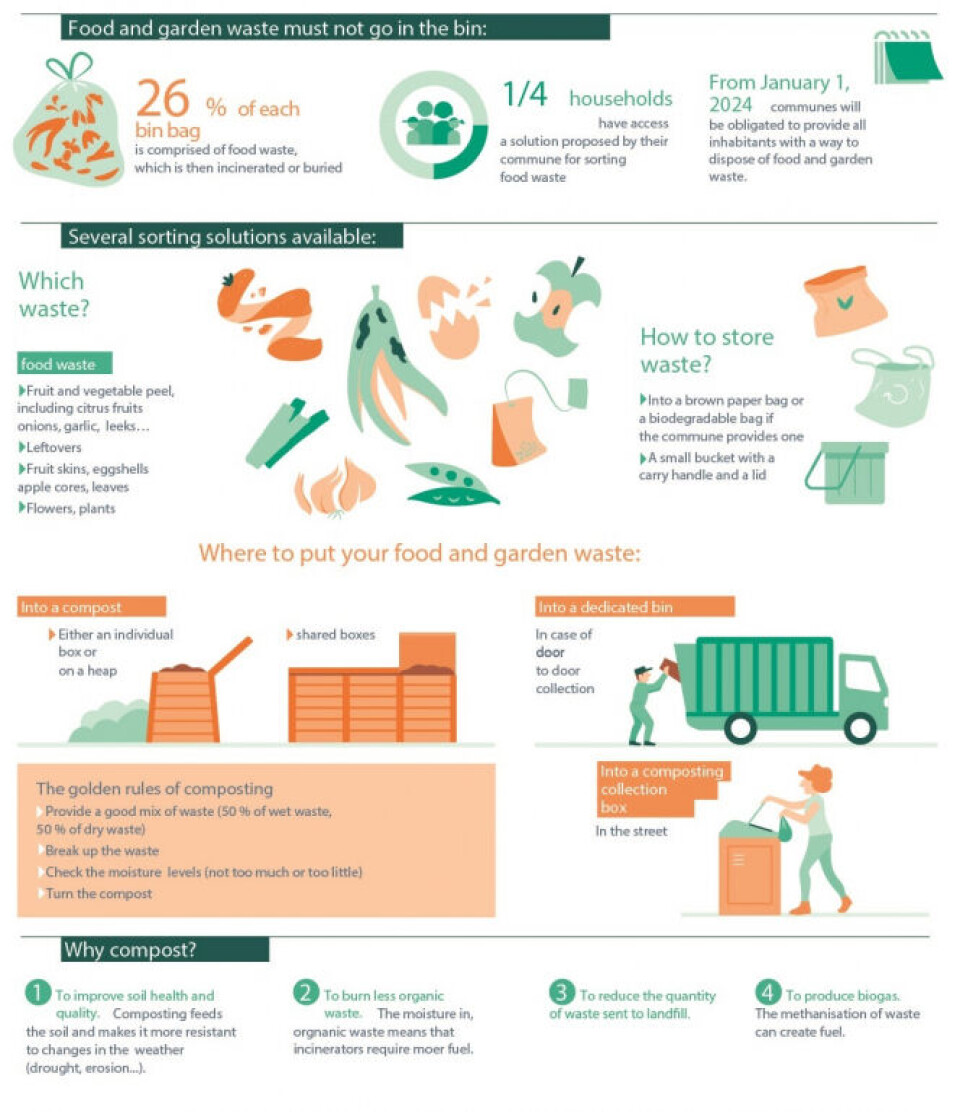-
How to dispose of bulky waste in France
Furniture, white goods…gas bottles? What counts as bulky waste and how to dispose of it
-
Local officials in south-west France search dumped bin bags to identify culprits
Around half of residents yet to collect access cards for new communal bins
-
French village latest to end door-to-door rubbish collection
The €1 million project is intended to ‘reduce anti-social waste behaviour’
Explainer: the rules about composting from January 1 in France
We look at the new responsibilities for both individuals and local authorities

New rules about the disposal of food and vegetable waste come into effect from January 1. We look at the obligations that these new rules bring for both local authorities and individuals.
At present, households put an average of 83kg of bio waste in the bin each year.
EU law says that by 2025 bio waste should not be disposed of in ordinary tips and incinerators.
To bring France in line with this law, all homes in France must have a way to keep their food waste separate from other rubbish, and local authorities must provide a means to dispose of it.
Households will be expected to have a separate bin for kitchen waste, such as peelings, coffee grounds, old bread and meal leftovers, as well as green garden waste.
This waste can then be put in a compost, although the rules do not make this mandatory for individual households.
However, the separation of food and garden waste from other household waste will be expected for all households and businesses from January 1 2024.
Local authorities will have to offer solutions, either by providing locations where people can put it, offering door-to-door collection, or with special bin lorries.
If the waste is collected, it will have to go to special treatment facilities where waste can be recycled into compost or bio gas.
Some local authorities might not accept meat and fish food waste in composts.
What are the new rules about food and garden waste in France?

Local authorities will have to inform residents on how to dispose of this waste by January 1.
No sanctions have yet been announced for households that fail to comply with the new rules.
Read more:
Most homes in France not ready to separate food waste come January 1
























